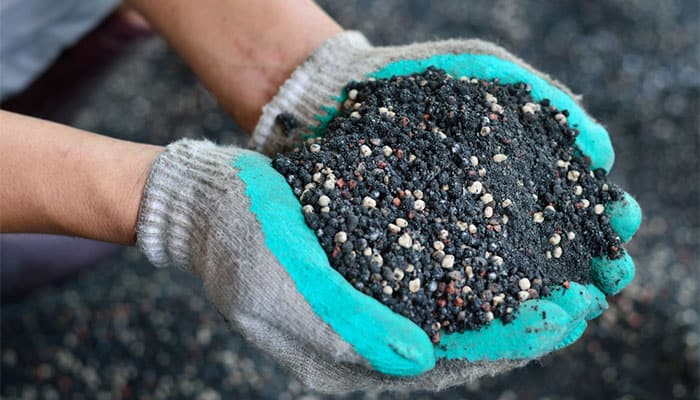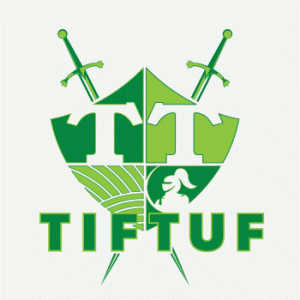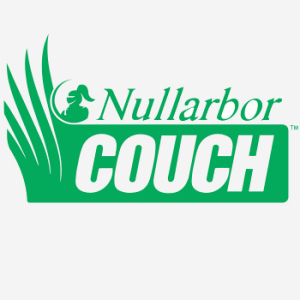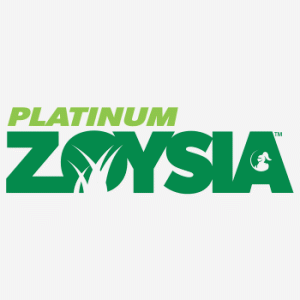One of the important aspects of lawn maintenance is fertilisation. This process ensures the soil has enough nutrients for the lawn grass to succeed, including nitrogen, phosphorous, and potassium. Nitrogen is what helps the foliage stay healthy, phosphorous supports the roots of the plant, and potassium improves overall strength and resistance. You should use lawn fertilisers with 12-25% nitrogen, and smaller amounts of phosphorous and potassium. Fertilisation does not need to happen very often, but fertilising two or three times a year is recommended to keep your lawn healthy.
 There are many different fertilisers available — some made purely of organic material and others using more processes. Both types will provide the nutrients needed, but there are some pros and cons to each.
There are many different fertilisers available — some made purely of organic material and others using more processes. Both types will provide the nutrients needed, but there are some pros and cons to each.
Organic Fertiliser
“Organic” as it refers to fertiliser is not the same as organic as it refers to food. It simply means nutrients are minimally processed, and you’re getting more of the entire binding agent. So, you’ll be getting the composted manure instead of the extracted nutrients from it.
Pros
- It’s almost impossible to over fertilise using organic fertiliser
- Over time, organic fertilisers will improve the structure of the soil and help it retain water and nutrients better
- You can make it yourself by composting
- It’s highly sustainable and eco-friendly
Cons
- Organic fertiliser is broken down by microorganisms that eat and process decaying plants and animal matter. Because these microorganisms need warmth, organic fertilising can be seasonally limited.
- Nutrient ratios are impossible to know for certain, and are often lower than in chemical fertilisers.
Chemical Fertiliser
Chemical fertiliser (also known as inorganic, conventional, synthetic, or manufactured) is made by stripping down rocks, petroleum, or other minerals directly into nutrients.
Pros
- You see much faster results because chemicals go directly to the plants
- Ratios are certain and you know exactly what you’re getting
- Chemical fertiliser tends to be cheaper than organic fertiliser when packaged
Cons
- While this type of fertiliser will feed your plants, it does nothing beneficial for soil structure. In fact, because it does not replace trace elements in soil, over time it may weaken or damage the soil
- There is a risk of over fertilising, which is not only harmful to the plants but to the entire ecosystem
- Often, chemical fertiliser is made from non-renewable sources and fossil fuels
Both types of fertiliser will give your grass the nutrients it needs, but it’s up to you which type you prefer to use. Remember that a well-maintained lawn takes care and research.
Do you have an opinion on natural vs chemical fertilisers? How have you got the best result for your garden? Let us know in the comments section.
Since 1974, Hi Quality Turf has offered a wide range of popular residential and commercial turf varieties to homes and businesses such as Buffalo Grass, Couch Lawn, Empire Zoysia, Kings Pride Buffalo, Palmetto, Sapphire Turf and Kikuyu. We understand how important beautiful green grass is to your outdoor space, and we’re happy to provide you with great advice on which turf will suit your needs. We deliver turf supplies within Sydney, Wollongong, Newcastle, Central Coast and many more.
For more tips on keeping your lawn well maintained, turn to our Sydney turf supplier. To talk to one of our experts, call 1800 040 981 or contact us via our website. https://hiqualityturf.com.au/contact-us/








